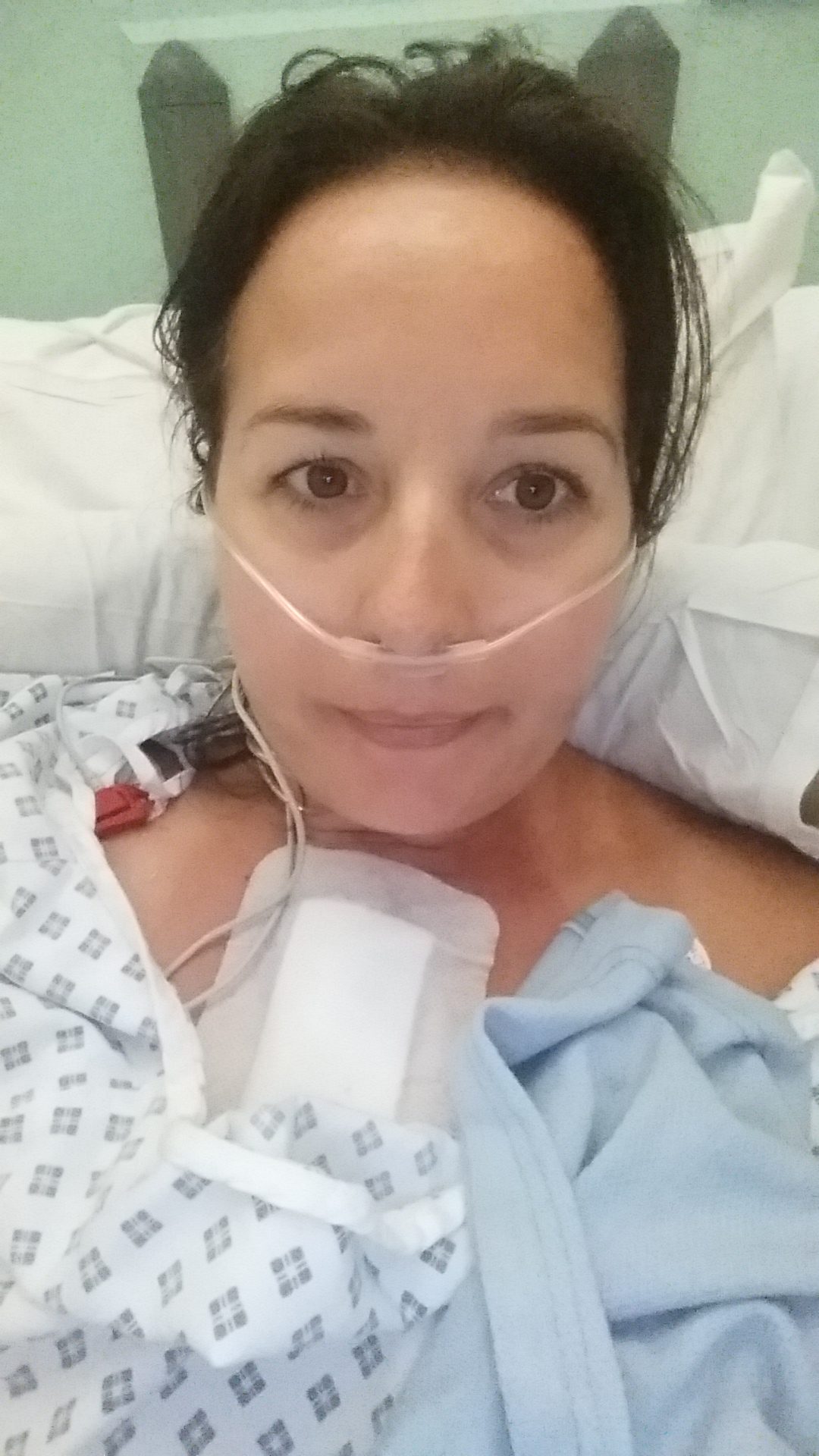The story of Liz
In October 2016 I went to work as usual but found on this day that I was unable to speak at a meeting. I was giving an update and about half way through my voice became high pitched, my throat felt odd, and I had no idea what was happening to me. This was my thymoma red flag. It’s not a symptom of thymoma but it is a symptom of myasthenia gravis which can be associated with thymoma. I had other things happening for at least 6 months before this but they were easier to ignore or shrug off. This was the first signal to me that there might be something serious going on and also the first thing that caused me significant embarrassment. The other symptoms incuded tired/ sensitive eyes, blurry vision, weak neck, problems chewing and smiling. I also felt generally low on physical energy and would tire quickly. I also had a persistent cough.
It took 3 gp visits and 2 neurologist visits to get a suspected myasthenia diagnosis. It then took another 2 months before a ct scan was done on my chest despite the association with thymoma. I then waited another month for the ct scan results to be told I have thymoma. My neurologist was evasive about what this is but recommended seeing a thoracic surgeon. I was told by neuro that this is not cancer. He misinformed me. I then saw the surgeon 6 weeks later who told me a different story. I was then told I would need a sternotomy to remove the tumour which was sitting above my heart and between my lungs. It was over 5cm in length. After my surgery my biopsy report showed that this was the more aggressive type of thymoma and it had invaded the tissue outside of the thymus gland. I therefore also then needed radiotherapy treatment and then started seeing an oncologist. I just had my follow up ct scan last week and am seeing oncologist again this Friday to check I’m still clear of a recurrence. My surgery was august last year and radiotherapy was completed in october. I feel I am recovering now and the side effects are lessening. I feel the neurologist response was too slow to the myasthenia and potential underlying thymoma. There are misperceptions about thymoma’s potential to invade. It should be taken more seriously by neurologists who can play a key part in the discovery of an invasive and aggressive thymoma. And it is a type of cancer. It should be treated like one from the moment there’s any possibility of it being there. The signs were clear that I was at risk due to my myasthenia red flags- why did the neurologist take so long to respond effectively?
